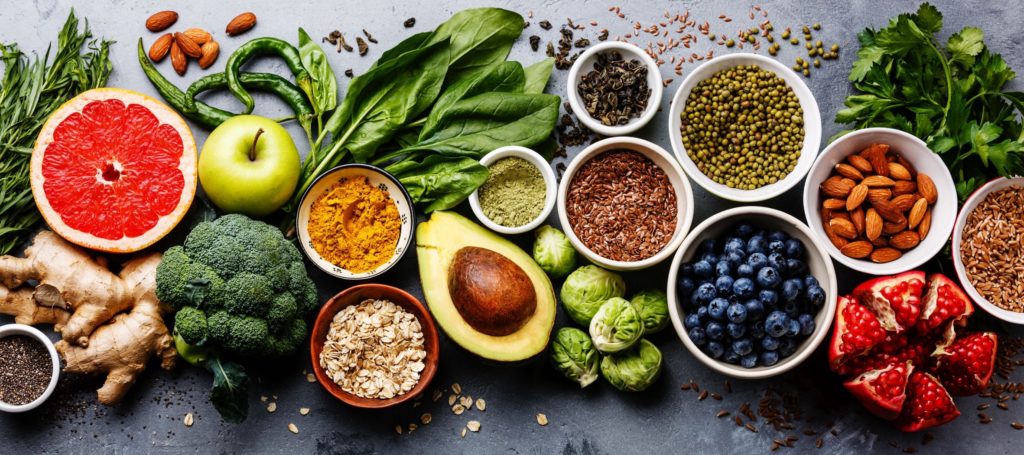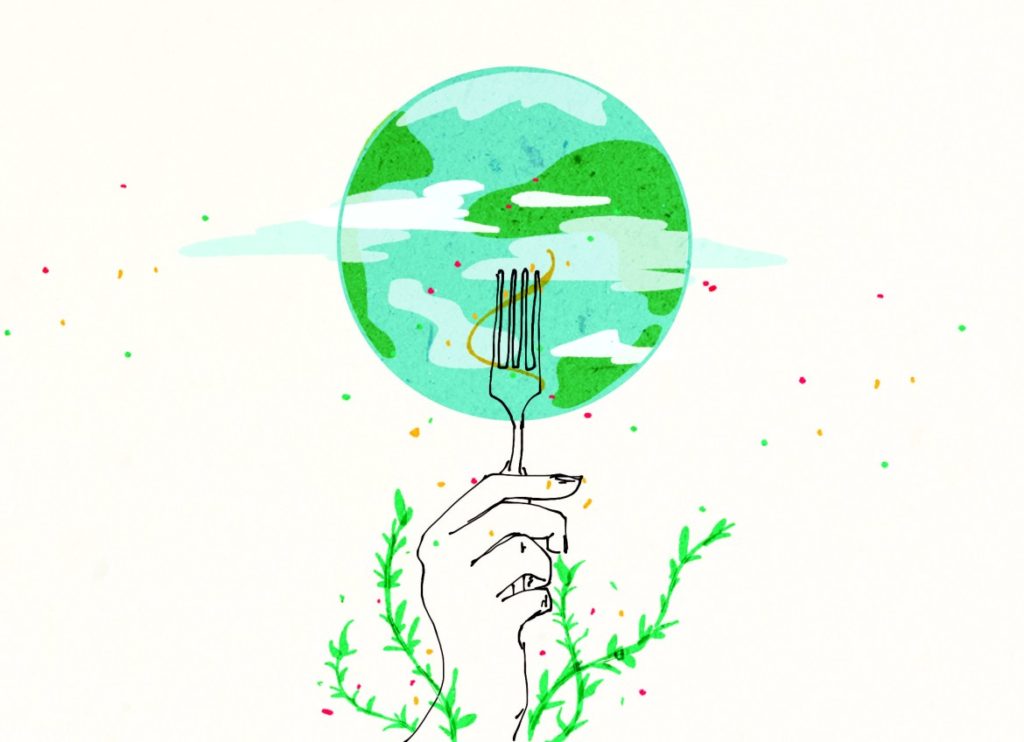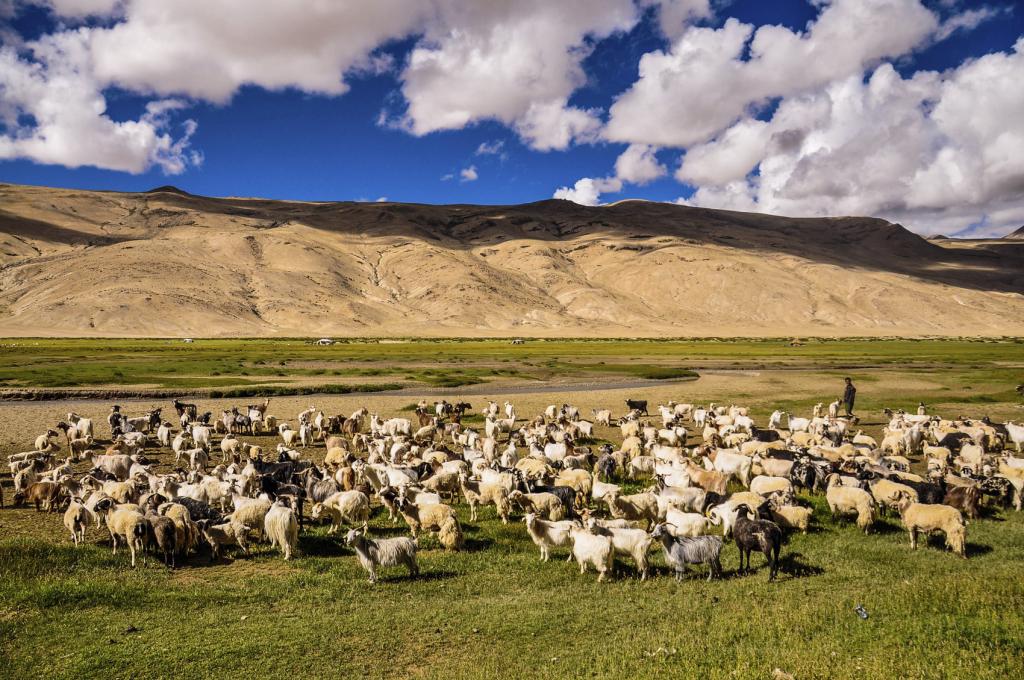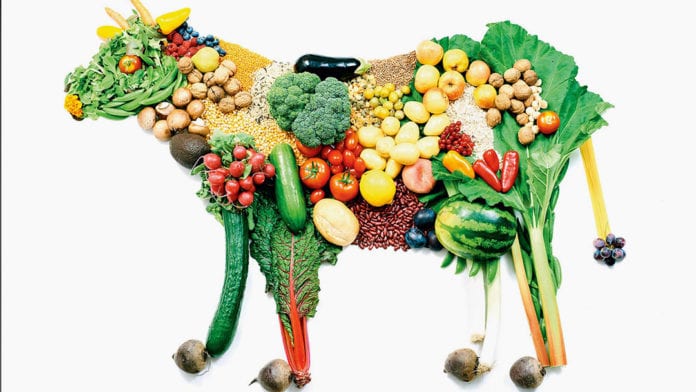Changing our diet might be the easiest way to save our planet. According to a recent study published in Nature Sustainability, turning vegan i.e., excluding all animal-derived ingredients from our diet can have a huge impact on the environment. It would lead to a restoration of the land (currently being used to produce meat and dairy) to its native ecosystems.
As a result, it could remove the same amount of CO2 as was produced by burning fossil fuels over the last 16 years. Matthew Hayek, the principal author of this study said, “by restoring our natural forests, we could buy some needed time for countries to transition their energy grids to renewable, fossil-free infrastructure”. Livestock produces methane i.e. a powerful greenhouse gas that is 28 times more powerful than CO2 at trapping heat.

The whole process of feeding livestock and then killing, processing, transporting and storing their flesh is very energy sensitive. Also, the manure that animals produce release even more greenhouse gases into the atmosphere.
“We only mapped areas where seeds could disperse naturally, growing and, multiplying into dense, biodiverse forests and other ecosystems that work to remove CO2 for us,” said Hayek. “Our results revealed over 7 million square kilometres where forests would be wet enough to regrow and thrive naturally, collectively an area the size of Russia.”
We can remove 332 gigatonnes worth of CO2 emissions from the atmosphere, which is equivalent to the amount of CO2 produced over the last nine years by fossil fuel burning, by just following a diet with less meat in it. Whereas, this number can go as high as 547 gigatonnes i.e., 16 years worth of CO2 emissions if we do not follow a vegan diet. (1 gigaton = 1000,000,000,000 kilograms).

Vegan Statistics from around the world
According to a survey conducted in 2018, 8% of the global population identified themselves as vegan, vegetarian or something in between. However, if we only talk about vegans, we are just left with 3%. Interest in ‘veganism’ has increased immensely in the years between 2014 and 2019, according to google trends.
Now a quick google search for veganism gets four times more interest than vegetarian or gluten-free searches. At the end of 2019, veganism as a term received five times more interest than vegetarian and cruelty-free searches combined. If we talk about the countries that have experienced the biggest rise in interest related to plant-based lifestyles, here are our top 10 according to google trends 2019:
- United Kingdom
- Australia
- New Zealand
- Canada
- Ireland
- United States
- Germany
- Netherlands
- Sweden
- Austria
Health benefits that a vegan diet can provide
A 2019 Harvard study reveals that a vegan diet can have an overwhelmingly positive effect on reducing the chances of getting type 2 diabetes, especially when only the healthiest plant-based diets are followed, which include nuts, legumes, whole grains, fruits and vegetables. Eliminating red meat from one’s diet reduces the risk of death by 12%.
A vegan diet is said to improve overall metabolism and reduce the risk of diabetes. It increases the number of good bacteria in our body which results in lower inflammation. Researchers also indicate that it helps in reducing blood sugar levels by 28% and that vegans lost an average of 15.8 pounds over 12 weeks when compared to people on a conventional diet, who lost only 8.4 pounds in the same amount of time.
What would happen to the animals if we all turned vegan?

The animal population would eventually decrease in numbers because the meat and dairy industry wouldn’t bother breeding them anymore as they won’t generate a lot of money. Some of the animals would have a better chance of surviving in the wild, while others wouldn’t. Also, if all the animals were removed from farming, how exactly would the farmers be compensated for the huge loss of their livelihood?
Animals don’t just provide us with milk, meat, eggs, wool and leather, they do so much more for us. They are used in manufacturing plastics, medicines, enzymes and vitamins, flavourings, gelatin, etc., and their manure is essential in making fertilizers. Apart from this, they are a source of transportation, labour, energy and companionship.
How many new problems would it create?
Research published by the US National Academy of Sciences states that, if the entire population turned vegan, it would have a negative effect on public health as it would leave many people deficient in a variety of nutrients. According to them, if all animals were removed from the planet, this would leave humans with 23% more food because grains consumed by animals would be left for human consumption. Some important nutrients that we get from animals such as, Vitamins A and D, B12, arachidonic and, many more, would decrease. We simply cannot fulfil all our nutritional requirements from plant-derived foods.
Thus, turning vegan also has its pros and cons. Avoiding meat, dairy, eggs, from time to time can be our first step towards a greener world. It can be a major lifestyle change for many of us. But in today’s time when our environment is depleting at such an alarming rate, we need to seriously think about what changes it calls for. We can always start small and by taking one step at a time.
Further Reading:



Have to say this is misinforming, humans simply can get all their nutrients from plant based sources.